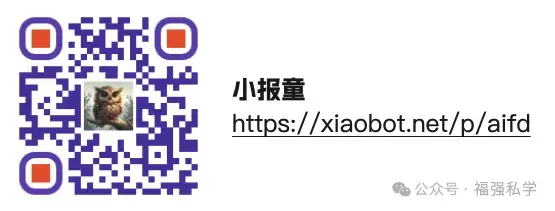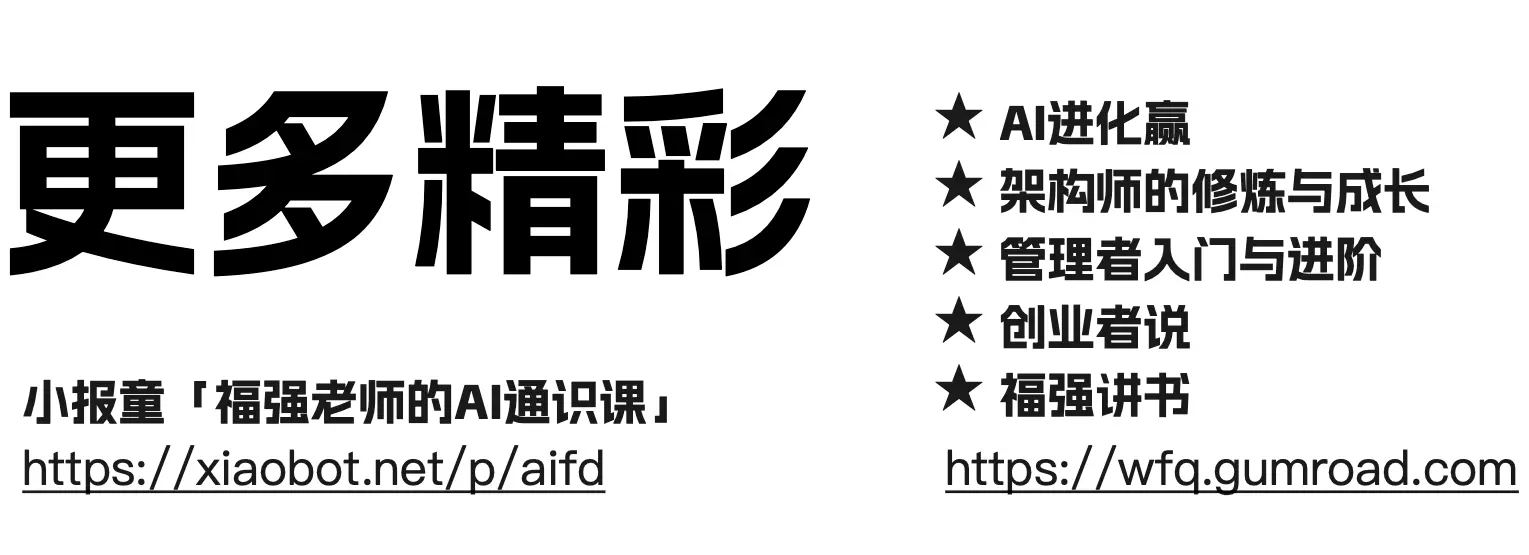JMS Durable Subscription Tutorial
过了近乎2个星期的倒班生活,现在都有点儿“恍如隔世”的感觉了,再加上老李临时给了个东西做,更是严重的“颠倒黑白”, 否则,这篇文字早就应该出来了,趁着今天可以偷懒,就在工作时间了结它吧!(别告我状啊,呵呵,偷偷di进村,打枪di不要…)
Durable Subscription 1释义(What’s Durable Subscription?)
对于什么是Point-to-Point(P2P)和Publish/Subscribe(Pub/Sub),我就不用废话了,大家应该比我都清楚, 我就直接说Durable Subscription了。
对于通常的消息订阅来说, JMS Provider会对这类消息订阅者“一视同仁”,你来了,我就给你消息,你走了,我就不管你了。 当消息到达指定Topic之后,JMS Provider只会为已经连接并且订阅了该指定Topic的消息订阅者发送消息, 如果消息到达之后你恰好不在,那不好意思,你将接收不到这一消息。这就好像现在的商场促销活动,礼品(消息)有限,虽然你(相当于消息订阅者)也想获得相应的礼品, 但当发送礼品的时候你不在礼品派发现场的话,你将失去这一获得礼品(消息)的机会,因为商场可不会管你是何方神圣,对于JMS Provider来说, 也是同样道理,只要我(JMS Provider)派发消息的时候你不在,你收不到消息是你自己找的,跟我没有关系。 也就是说,JMS Provider不会“耗费脑筋”去记下谁还没有来接收消息,就跟商场不会纪录到底谁的礼品还没有来领取一样, 因为对于这种情况来说,耗费资源去这些不确定的client, 完全就是non-sense的,不是嘛? JMS Provider或者说商场,根本就不会知道谁会来领取消息或者礼品。
当我们转到Durable Subscription的时候,情况就完全不同了。如果消息订阅者通过Durable Subscription的方式来订阅消息, 那么JMS Provider将会费点儿脑筋来记下这个Durable Subscription的消息订阅者是谁,即使当消息到达之后,该Durable Subscription消息订阅者不在, JMS Provider也会保证, 该Durable Subscription消息订阅者重新回来之后,之前到达而该Durable Subscription消息订阅者还没有处理的消息,将被一个不少的发送给它。
Let’s take something for example. 假设你经营一家旅游胜地的旅馆,对于来住宿的顾客来说,你可以将他们划分为两类:
- 散客,不事先预定你的旅店
- 对于这类顾客来说,你也不会知道他来自哪里,姓甚名谁,只会在他们入住后临时为期分配房间并提供相应服务,一旦他们退房离开,旅馆方将不再保留与之相关的任何信息。 这是不是与通常的消息订阅者很像?
- 常客,或许都持有你旅馆的VIP卡
- 对于这类顾客,一旦他们拥有了VIP卡,则意味着他们之前已经登记过,当他们再次光临的时候,根据VIP卡这一标志,你就可以确定他们上次入住的房间等信息, 这样就可以为他们提供相同的房间,相同的服务。直到他们主动注销VIP卡或者VIP卡期限到期, 你的旅馆将一直保留这类顾客的相关信息。而这恰好与Durable Subscription场景下,JMS Provider与Durable Subscription消息订阅者之间的关系很相似。
简单来说,区分Durable Subscription和Nondurable Subscription最明显的一个标志就是,JMS Provider是否会为消息订阅者保存相应的状态。 对于Durable Subscription来说,JMS Provider会根据消息订阅者提供的某种标志来为其保留相应状态, 就类似于那张VIP卡或者身份证,在使用JMS API进行Durable Subscription的编程的时候,消息订阅者必须通过某种方式来提供这种标志性信息,这是最需要我们关注的一点。
在了解了Durable Subscription的语义之后,我们马上来看一下如何使用JMS API进行实际的Durable Subscription编程, 并详细了解在JMS API中,我们可以通过什么途径为JMS Provider提供Durable Subscription消息订阅者的标志信息…
如何进行Durable Subscription(Durable Subscription How to)
我们以一个简化功能的类似Spring的SimpleMessageListenerContainer为例,来说明进行Durable Subscription的过程中应该注意的几个问题,下面是该类的代码:
public class GenericSimpleMessageListenerContainer extends ServiceWithLifecycle {
private static final transient Log logger = LogFactory.getLog(GenericSimpleMessageListenerContainer .class);
private JndiTemplate jndiTemplate;
private String connectionFactoryJndiName;
private String destinationJndiName;
private ConnectionFactory connectionFactory;
private Destination destination;
private MessageListener messageListener;
private Connection sharedConnection;
private Session session;
private MessageConsumer messageConsumer;
/*
* set a non-empty durableSubscriptionName to perform durable subscription
*/
private String durableSubscriptionName;
/*
* to identify durable subscriber plus durableSubscriptionName
*/
private String clientId;
public GenericSimpleMessageListenerContainer()
{
}
public GenericSimpleMessageListenerContainer(JndiTemplate jt)
{
this.jndiTemplate = jt;
}
protected void doStart()
{
Validate.notNull(getMessageListener());
setupConnectionFactoryIfNecessary(jndiTemplate);
setupDestinationIfNecessary(jndiTemplate);
try {
setupSharedConnectionIfNecessary();
session = getSharedConnection().createSession(false, Session.AUTO_ACKNOWLEDGE);
if(StringUtils.isNotEmpty(getDurableSubscriptionName()))
{
if(logger.isInfoEnabled())
{
logger.info("create durable subsriber with name:"+getDurableSubscriptionName());
}
messageConsumer = session.createDurableSubscriber((Topic)getDestination(), getDurableSubscriptionName());
}
else
{
if(logger.isInfoEnabled())
{
logger.info("create generic Message Consumer.");
}
messageConsumer = session.createConsumer(getDestination());
}
messageConsumer.setMessageListener(getMessageListener());
getSharedConnection().start();
if(logger.isInfoEnabled())
{
logger.info("The Connection to deliver messages is Started now!");
}
} catch (JMSException e) {
logger.error("failed to start Message listener container!!!\n");
JmsUtils.closeMessageConsumer(getMessageConsumer());
JmsUtils.closeSession(getSession());
JmsUtils.closeConnection(getSharedConnection());
throw JmsUtils.convertJmsAccessException(e);
}
}
protected void doStop()
{
try {
getSharedConnection().stop();
} catch (JMSException e) {
logger.warn("failed to stop connection of delivering jms message.\n");
logger.warn(ExceptionUtils.getFullStackTrace(e));
}
JmsUtils.closeMessageConsumer(getMessageConsumer());
JmsUtils.closeSession(getSession());
JmsUtils.closeConnection(getSharedConnection());
}
/**
* After creating connection from ConnectionFactory,
* we will check whether we can set clientId for the created connection,
* If a pre-configured client Id exists, we will not try to set our clientId;
* otherwise we will set our custom client Id if it's not empty.<br>
*
* The try-catch(IllegalStateException) is also for checking whether the jms provider has pre-configured a client Id for the connections it creates.<br>
* If a pre-configured client id does exist, we will let it be, so after catching such exception, we just log it in WARN level to notify us.<br>
*
* @throws JMSException
*/
private void setupSharedConnectionIfNecessary() throws JMSException {
if (getSharedConnection() == null)
{
setSharedConnection(getConnectionFactory().createConnection());
String preConfiguredClientId = getSharedConnection().getClientID();
if(StringUtils.isEmpty(preConfiguredClientId) && StringUtils.isNotEmpty(clientId))
{
try
{
getSharedConnection().setClientID(clientId);
if(logger.isInfoEnabled())
{
logger.info("set up JMS Connection with Client Id:"+clientId);
}
}
catch(IllegalStateException e)
{
logger.warn("A pre-configured client id exists, durable subscriber will use this client id and ignore external setted client id.");
logger.warn("pre-configured client id:"+preConfiguredClientId);
logger.warn("external setted client id:"+clientId);
}
}
}
}
private void setupDestinationIfNecessary(JndiTemplate jndiTemplate) {
if(getDestination() == null)
{
Validate.notEmpty(getDestinationJndiName());
try {
setDestination((Destination)jndiTemplate.lookup(getDestinationJndiName()));
} catch (NamingException e) {
throw new RuntimeException("failed to lookup destination via JNDI with jndiName:"+getDestinationJndiName());
}
}
}
private void setupConnectionFactoryIfNecessary(JndiTemplate jndiTemplate) {
if(getConnectionFactory() == null)
{
Validate.notEmpty(getConnectionFactoryJndiName());
try {
setConnectionFactory((ConnectionFactory)jndiTemplate.lookup(getConnectionFactoryJndiName()));
} catch (NamingException e) {
throw new RuntimeException("failed to lookup ConnectionFactory via JNDI with jndiName:"+getConnectionFactoryJndiName());
}
}
}
// getters and setters...
}如果你在使用Spring 2.x之前的版本而又不能升级,那么这个类可以“凑合”用一下(因为它的功能并不完备,比如没有添加MessageSelector以及多线程等功能支持), 如果可能,还是建议你使用Spring 2.x之后引入的SimpleMessageListenerContainer或者DefaultMessageListenerContainer,当然了,这些属于题外话,使用JMS API进行Durable Subscription编程与通常的方式没有太多差异,只要搞清楚一下两点,剩下的基本就不会有太大问题了。
Client Id
JMS规定了两种Administered Object,即ConnnectionFactory和Destination,所以,“万物伊始”,我们得先将这两个东西从JNDI上拿下来, GenericSimpleMessageListenerContainer提供了两种方式,要么你在外面获取到这两个东西, 然后直接注入给他;要么你就传一个JndiTemplate, 然后注入这两个东西对应的Jndi名称。
有了ConnectionFactory,我们可以通过它创建到相应JMS Provider的连接;有了Destination,我们才知道该去哪里接收消息,我想这个很容易理解, 这里需要着重说明的是ConnectionFactory。
我们已经说过, 要进行Durable Subscription,客户端必须提供某种类似VIP卡或者身份证之类的标志,在JMS中,Client Id的存在即是因为如此。 将Client Id称作Connection Id或许更好理解,它与JMS的Connection相“挂钩”,当一个JMS Connection被创建之后, 它有两种方式获得它的Client Id:
- 通过ConnectionFactory自动获得
- 既然ConnectionFactory属于Administered Object, 那么在各个JMS Provider中部署相应ConnectionFactory的时候, 我们就可以设定通过ConnectionFactory创建Connection的时候,是否要为创建的Connection设定Client Id, 以及该设定什么样的Client Id, 而具体设定方式可能需要参考各个JMS Provider各自的文档。
- 客户端程序自定义设定
- 在Connection被创建之后,并且没有进行任何其他操作之前,客户端程序可以为其设定自定义的Client Id,不过,如果该Connection已经被ConnectionFactory预先设定了Client Id的话, connection..setClientID(clientId)将会抛出JMS的IllegalStateException。
所以,在setupSharedConnectionIfNecessary()方法中,你会发现,我们会事先检查ConnectinFactory是否已经预先设定过Client Id,如果没有并且客户端程序持有注入的非空的Client Id, 那么我们才会为Connection设定自定义的Client Id。
CAUTION
连接到JMS Provider进行Durable Subscription的多个Connection不可以拥有相同的Client Id,否则也会被IllegalStateException伺候!
Subscriber Name
单凭Client Id还不足以唯一标志某一个Durable Subscription,就跟我凭一个身份证,可以预定多个房间一样。 同一个连接里,你可以创建多个MessageConsumer去订阅不同Topic的消息,如果下回回来,你只想继续接受某一个Topic消息的话,JMS Provider如何知道是哪一个? 所以,为了区分同一个Connection中不同的Durable Subscription,我们还需要进一步的标志物,这就是Subscriber Name!
messageConsumer = session.createDurableSubscriber((Topic)getDestination(), getDurableSubscriptionName());通过Session创建DurableSubscriber的时候,我们要为其提供一个Durable Subscriber Name,这是与普通订阅最基本的区别:
messageConsumer = session.createConsumer(getDestination());有了SubscriberName之后,下回,当我们重新连接然后使用相同的SubscriberName创建消息订阅的时候,JMS Provider就会知道将哪一个Durable Subscription使用的Topic中的消息进行传送了。
NOTE
创建MessageConsumer的时候可以同时设定相应的Message Selector, 另外进行异步消息接收的时候,需要为MessageConsumer设定相应的MessageListener, 最后,调用connection.start()方法告知JMS Provider开始进行消息传送,这里只是简单提及一下,我向大家比我更清楚。
小结
Connection级别的Client Id和创建MessageConsumer时候的Subscriber Name唯一标志一个Durable Subscription,这是在JMS中成功进行Durable Subscription的前提(当然,要是JMS Provider过于“山寨”,或许也不成)。
基本上,个人觉得在Durable Subscription中要提的就这些了。 有关JMS更多信息,可以参考JMS规范以及各个JMS Provider提供的文档。
倾听了’袜子’和Marvel在这一问题上的论点之后,才有了写下这段文字的想法, Thanks to you both!
BTW. 以上纯属个人观点,如果有误,还望各位看官指出。
中文通常翻译为“持久化订阅”或“持久订阅”↩︎
开天窗,拉认知,订阅「福报」,即刻拥有自己的全模态人工智能。



